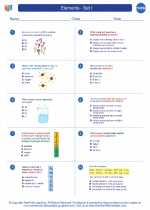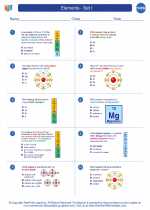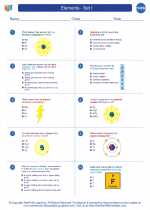Agriculture
Agriculture is the practice of cultivating plants and raising animals for food, fiber, and other products used to sustain and enhance human life. It involves a range of activities including crop production, animal husbandry, and soil management.
Importance of Agriculture
- Provides food and nutrition for human consumption
- Serves as a source of raw materials for various industries
- Contributes to economic development and employment
- Plays a crucial role in environmental conservation and sustainability
Key Concepts in Agriculture
- Crop Production: Involves the cultivation of plants for food, feed, fiber, and fuel. Key aspects include plant breeding, pest management, and crop rotation.
- Animal Husbandry: Focuses on the care and breeding of domesticated animals for meat, milk, eggs, and other products. It includes animal nutrition, health management, and breeding techniques.
- Soil Management: Encompasses the practices and techniques used to maintain and improve soil fertility for sustainable agricultural production. Soil conservation, organic farming, and use of fertilizers are important components.
Challenges and Innovations in Agriculture
Modern agriculture faces various challenges such as climate change, water scarcity, and the need to meet growing food demands. Innovations including precision agriculture, genetic engineering, and sustainable farming practices are being employed to address these challenges.
Study Tips
To excel in the study of agriculture, consider the following tips:
- Understand the principles of plant biology and animal science
- Explore the impact of technology on modern agricultural practices
- Stay informed about current issues in global agriculture and food security
- Engage in hands-on experiences such as gardening or visiting farms
◂Chemistry Worksheets and Study Guides High School. Elements - Set I
Worksheet/Answer key Elements - Set I
Elements - Set I  Worksheet/Answer key
Worksheet/Answer key Elements - Set I
Elements - Set I  Worksheet/Answer key
Worksheet/Answer key Elements - Set I
Elements - Set I 

 Worksheet/Answer key
Worksheet/Answer key
 Worksheet/Answer key
Worksheet/Answer key

The resources above cover the following skills:
PHYSICAL SCIENCE (NGSS)
Matter and Its Interactions
Students who demonstrate understanding can:
Use the periodic table as a model to predict the relative properties of elements based on the patterns of electrons in the outermost energy level of atoms.
Plan and conduct an investigation to gather evidence to compare the structure of substances at the bulk scale to infer the strength of electrical forces between particles.